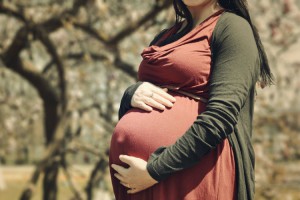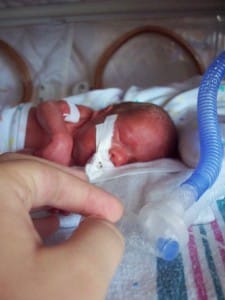This article aims to explore the topic of alcohol consumption during pregnancy and breastfeeding. The focus is not only on presenting the recommendations but also on explaining the reasoning behind them, emphasizing the importance of understanding the “why” as well as the “what.”
Public health organisations that prepare guides base their contents on current knowledge. Their advice isn’t provided on a whim but based on information that changes over time and considerations for things still unknown by the research community. That said, research allows us to understand phenomena better. Even if we can’t explain everything, we can follow how knowledge changes and improve the health of mothers and future babies as much as possible. This is called health promotion and prevention, acting early to avoid certain unfortunate situations that can be avoided.
The Institut national de la santé Publique du Québec (INSPQ) has just updated its data about consuming alcohol during pregnancy.
Did you know that the last research about consuming alcohol during pregnancy, which was completed in 2006, indicates that a bit more than 20% of women in Quebec state that they consumed alcohol at least once during their pregnancy? This is a very high percentage if we compare it to the rest of Canada, which is around 11%. We need to increase awareness.
Alcohol During Pregnancy
We currently know that consuming alcohol during pregnancy can lead to risks of pregnancy complications for the future mother. There are other risks of defects occurring in the baby during their development process.
It’s important to note that consuming alcohol during pregnancy is never safe, irrespective of type, levels or frequency.
As a pregnant woman increases her alcohol consumption, risks for problems occurring in the baby increase.
Sometimes we hear people say, “don’t worry, it’s just a glass.” With currently available information, there are no guarantees there won’t be an impact on you or the baby even if you consume alcohol infrequently and in very low quantities.
The consequences of consuming alcohol aren’t always visible at birth and can appear later in the infant’s life. Since the placenta allows alcohol consumed by the mother to reach the baby via the blood at a similar concentration level, we recommend never drinking alcohol during pregnancy.
What we know about alcohol consumption during pregnancy:
- The more alcohol consumed by the mother, the more the baby is at risk;
- The more frequently alcohol is consumed by the mother, the more the baby is at risk;
- The more types of alcohol consumed by the mother, the more the baby is at risk;
- The time the baby was exposed to alcohol during pregnancy (stages of their in-utero development) influences the possible consequences on the future infant;
- If the mother’s lifestyle habits and diet, rest and activity levels were poor and she consumes alcohol, this can also increase the negative impact on the baby’s development;
- The pregnant woman’s state of health or genetics can also influence alcohol consumption.
The Effects of Alcohol on the Pregnant Woman
Consuming alcohol when pregnant can lead to more miscarriages (in french) at the start of pregnancy and premature births(in french) later during gestation.
According to the Society of Obstetricians and Gynecologists of Canada, if the woman consumed a low quantity of alcohol before she knew she was pregnant, terminating the pregnancy as a preventative measure isn’t necessary.
In-utero deaths have been noted when consuming alcohol during pregnancy. These are risks we can prevent, and you have power over them—avoid drinking alcohol throughout your pregnancy!
The Effects of Alcohol on the Baby
Alcohol is a teratogenic agent, which means it can lead to congenital birth defects for the baby. When we talk about alcohol, I’m referring to beer, wine and other spirits.
We can’t know in advance the type of impact alcohol in the baby’s blood system will have on their development. According to research, the heart, kidneys, liver and digestive tract are the parts of the body most impacted.
Additionally, the brain is susceptible to the effects of alcohol. There can be different kinds of symptoms when the child is born or later in their life.
After childbirth, we can note that they’re irritable, tremble, or present dietary, respiratory and digestive problems such as newborn diarrhea.
Over time, neuro-developmental disorders can occur based on the impact on the cerebral matter. Problems with speech, learning, memory, attention, impulsivity or behaviour are only a few examples of possible effects.
Cooking With Alcohol When Pregnant
Parents often inquire about the possibility of using alcohol in recipes during pregnancy. For dishes that involve boiling, such as those with wine or beer, the alcohol evaporates during the cooking process, making it safe to include. However, in desserts or any preparation that does not require cooking, alcohol remains intact and should be avoided, as it is comparable to consuming it directly.
Fetal Alcohol Spectrum Disorder (FASD)
The Canadian Pediatric Society notes that the term Fetal Alcohol Syndrome (FAS) has been around since 1973.
Classical physical manifestations noted when the fetus is exposed to alcohol during pregnancy have allowed for the study of the phenomenon. We now better understand the possible impacts on future babies.
Facial traits, especially the upper lip and eyes, as well as developmental problems have been better identified over time. Since 2016, FASD diagnosis has been used, replacing the term fetal alcohol syndrome.
Fetal Alcohol Spectrum is a common disorder which we believe is clinically underdiagnosed. It’s associated with the mother’s alcohol consumption during pregnancy.
It’s not easy to diagnose FASD because the manifestations can vary from one child to another over many years as they grow and develop.
Not all children will be diagnosed with FASD, even if their mother consumed alcohol when pregnant.
Once the baby is born, can we drink alcohol if you are breastfeeding?
Alcohol and Breastfeeding
If you’re a mother who would like a glass of wine or beer during breastfeeding, here are a few suggestions to reduce alcohol transfers to your baby through your milk. As long as the quantity remains limited (1 to 2 drinks) and occasional, the baby will be fine, except for maybe possible minor sleep disturbances.
Dr. Carlos Gonzalez, pediatrician and author of Breastfeeding Made Easy, informs us that the concentration of alcohol in a mother’s milk is roughly equal to the concentration of alcohol in her blood. Of course, breast milk is constantly filtered (like blood) and the presence of alcohol will diminish over time.
Since we estimate that alcohol can pass through breast milk 30-90 minutes after consumption, here are several recommendations:
- Breastfeed your baby just before consuming alcohol;
- After drinking alcohol, if possible, wait at least 2-3 hours before breastfeeding your baby. Of course, this is easier if the baby has a breastfeeding routine;
- Keeping you well hydrated and nourished also helps metabolize alcohol;
- If you want to drink more when going out, keep a milk reserve to feed your baby when you’re away. When you get home, during the 3 hours following your last consumption, you can pump your milk and throw it away to avoid transmitting higher levels of alcohol to your baby. Depending on how much you drink, you should skip one, two or even more feeds to make sure that the alcohol level in your milk is minimal. You can then return to your regular breastfeeding schedule.
If alcohol has been consumed in large quantities, regardless of your breastfeeding, this may entail risks for the baby, depending on his or her age and the time of consumption. In addition to sleep disturbances, there may be more crying and waking, as well as a decrease in feeding, which could result from a drop in nutrient intake.
If the breast-feeding mother consumes alcohol regularly and excessively, certain effects may be noticeable in the baby in the short, medium and long term :
- growth delay
- immune deficiency
- various developmental disorders
Possible Effects of Alcohol on Breastfeeding
Even if you consume alcohol in moderation, keep an eye on your milk production because it can lower the effects of alcohol. The ejection reflex can also be disturbed, so this is why it’s important to be watchful.
Need help to stop drinking?
Mothers who made the effort to avoid alcohol during pregnancy deserve recognition for their commitment to both their own health and the well-being of their baby. Their dedication is commendable and sets a strong foundation for a healthy start in life.
Some people will struggle to stop drinking, and it’s important to know that personalised resources are available to support pregnant and breastfeeding women.
Your network of friends, family and people you know should encourage you to avoid alcohol during pregnancy. They should never create opportunities to drink or pressure you to drink.
Do you want to stop drinking and would like specialised support? Many resources are available, and your health professional can help you and refer you to the right one.
As you have seen, a lot of information about alcohol during pregnancy and after childbirth is available. These articles can increase your knowledge if you’re someone who never uses alcohol. If you drink alcohol, you now have the latest information about impacts and recommendations.
If you want to have a healthy alcohol-free drink, one that everyone will want to try, please consult the amazing alcohol-free mixes found for free in the Ebook—Recipes for Alcohol-Free Drinks (in french).
Marie Fortier
The Baby Expert
Updated article : March, 2025.
References :
-
Breastfeeding Made Easy : A gift for life for you and your baby, Dr Carlos Gonzalez pediatrician, 3ième édition Londres, 2014
-
https://www.chusj.org/fr/soins-services/A/Allaitement/Se-preparer-et-bien-debuter-l-allaitement/Allaitement-et-habitudes-de-vie
-
https://promotionsante.chusj.org/fr/Grossesse-et-nouveau-ne/Tabac-alcool-cannabis-et-allaitement/Alcool-grossesse-et-allaitement
-
https://allaitement.ca/allaitement/lalcool-lallaitement-et-le-temps-des-fetes/
-
https://nourrisourcemontreal.org/fr/allaitement-alcool/
-
https://resources.beststart.org/fr/product/a28f-consommation-alcool-et-allaitement-feuillet/


